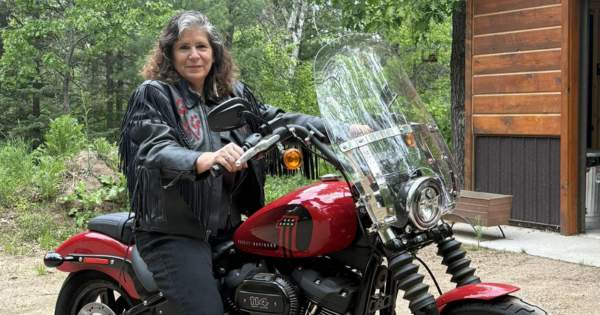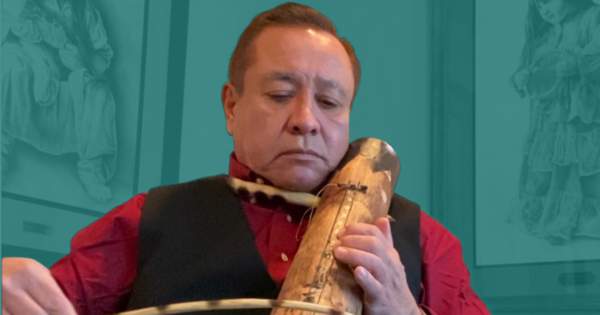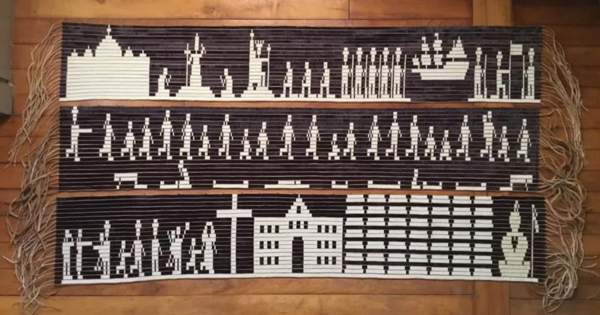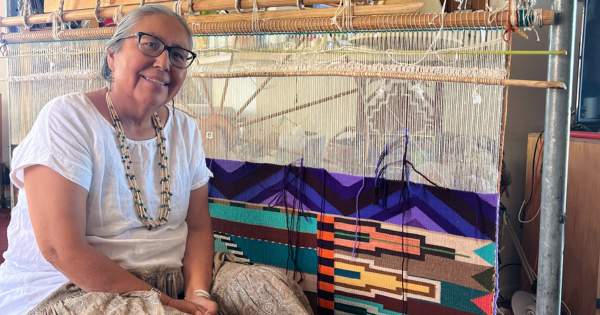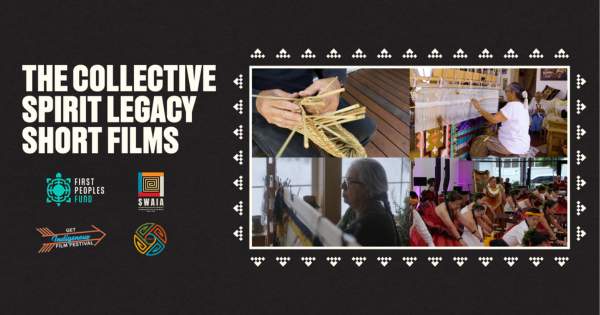
Mni Giizhik Theatre Ensemble: We Are the Ones to Tell Our Stories
We have good news! In alignment with our first Native Performing Arts Production Grants (NPAP), grantee Mni Giizhik Theatre Ensemble opens its debut show!
Mni Giizhik co-founders Sequoia Hauck (White Earth Anishinaabe, Hupa), Sara Pillatzi-Warzeha (Sisseton-Wahpeton Dakota), and Adrienne Zimiga-January (Oglala Lakota) are thrilled to present their first production, Niizh. The preview from the producers? “It. Is. Fire.”
This much is clear: equipped with a formidable toolkit of theatrical skills, firm community commitment, and compelling synergy, Mni Giizhik can only use their powers for good. In conversation with this dynamic trio, the company’s deeply held values are ever-present.
Grounded in a collective leadership model, the ensemble recognizes the sacredness inherent in a name. Mni, Lakota/Dakota, is translated as “water” in English, and giizhik, Ojibwe, means “cedar.” Merging languages symbolizes the specificity and variety of languages, lands, and cultures the collective embodies.
For all three artists, working together represents a profound privilege. These theater professionals are comfortable with a fluid shifting of roles and responsibilities. A tight crew with many hats on each head, everyone does everything. “The model,” Sequoia says, “is only that we are a team.”
Was this collaboration inevitable? After years of seeing and hearing about one another onstage, offstage, and backstage, the three joined the Native Advisory Council at the Guthrie Theater. Sara recalls leaving the meetings at the Guthrie with a shared frustration: “We need more Native stories. We’ve got to tell them.” A shared love of storytelling ways led to Mni Giizhik.
The company members also share a trajectory. Engaged with theater early on, all three experienced a time when theater felt out of reach. Each identifies a defining moment when the community threw open the theater doors:
Adrienne, a creative director and the graphic designer behind Mni Giizhik’s imagery, offered to make a poster for a local show, only to be written into the script. Adrienne’s appearance in that show led to even more performing, making her a familiar face onstage in the Twin Cities.
When Sequoia began college, they convinced themself that theater was “not for me anymore.” They concede now that an element of trauma response was at play, having internalized messages of not belonging. To their surprise, one day during office hours, they asked their Native Studies professor about native theater happenings in the Cities. If Sequoia’s unspoken question was “Should I do this?” the resounding answer was Yes. Here are some people. Find them. Go.
Attending college in Aberdeen, SD, the theater was missing for Sara, until a professor encouraged her to come to an audition. “‘I don’t have anything!’” she recalls telling him. He responded, “You can sing Happy Birthday. Just come.” She did. She has been “in theater forever from that point.”
Now a theater professor, Sara remembers taking her mom to The Master Butchers Singing Club, an adaptation of a Louise Erdrich novel starring a Menominee actor. Pursuing her MFA at the time, Sara wrote for class about the brilliant performance, only to be disparaged by her professor. “He told me I couldn’t have been more wrong. I returned to him, saying, ‘This is how we tell stories in my family. This is accurate to our ways of storytelling’—but he wouldn’t bend.”
Sara’s interaction illustrates a reality the ensemble recognizes: too often, Native theater is held to a standard “that isn't ours.” Adrienne adds that non-Native treatment of Native stories in theater often falls into “trauma-porn.” Mni Giizhik wants to tell stories that uplift and strengthen, keep people going, and make them laugh.
“We want to show that we have joy within our communities, no matter where we are.”
A founder of the Native Advisory Council, Adrienne has no doubt that artists and audiences are ready for Native storytelling on the big stages. Some of the systems in place, however, are not ready. “It seems like whenever we have Native programming,” Adrienne notes, “it sells out. I don’t know why they haven’t figured that out yet.”
Encountering resistance only fuels Mni Giizhik's dedication to creating safe intercultural spaces, caring and supportive environments where Native artists can feel seen for who they are. The company knows firsthand the power of a nudge forward at the right moment. Providing inspiration and opportunities for Native youth is a priority. Sara reflects, “Growing up, I was so hungry for any representation—even bad representation felt like something.”
Niizh opens in May at 825 Arts in St. Paul. Written by Joelle Peters (Walpole Island First Nation) and adapted and directed by Sequoia, Niizh is a coming-of-age rom-com featuring an all-Anishinaabe cast. Full representation of a tribe is rare in performance and is a long-held dream for the playwright. The deep connectedness of the cast tells a love story about love of self, tribe, language, and community. Even before opening night, the cast lets Mni Giizhik know they’re getting it right. One actor shares that coming to rehearsal helps their mental health, physical health, and identity. “This,” Adrienne remarks, “ is cedar water, healing water.”
Mni Giizhik’s commitment to stewarding community stories yields plentiful partnerships and production plans. From Bowwow Powwow with youth theater Stages, to a new production of Marcie Rendon’s Say Their Names, Mni Giizhik Theatre Ensemble is nurturing stories from dream to stage set. Congratulations, Mni Giizhik, the time is now!

